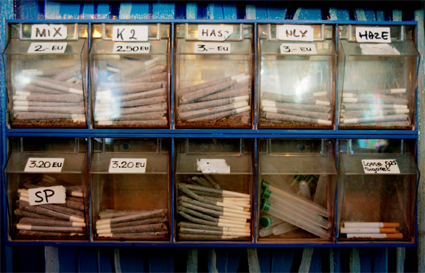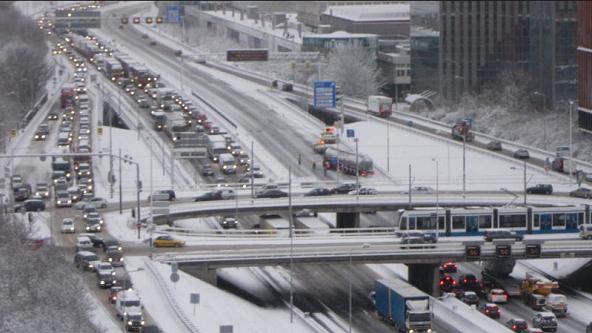
I’ve posted before about the “wietpas“, the current Dutch government’s attempt to slowly strangle the coffeeshops by depriving them of foreign customers, but that’s not the only measure they want to introduce. Another proposal doing the rounds right now is the idea to close any coffeeshop that’s too near a school, for the sake of the children of course. Exactly what is too near a school and which kind of schools will fall under this new proposal is still unclear. The only thing we know so far of the plans is that the governments wants to ban all coffeeshops in a range of 350 metres distance from a school, but not how this will be measured — as the crow flies, or based on the shortest route from a given school to a shop. That last measurement would probably the least harmful to existing coffeeshops, but even then almost sixty percent of coffeeshops in the Netherlands would have to close, according to the NRC newspaper.
They looked at the fourteen municipalities with ten or more coffeeshops within their borders, who together account for 442 out of the 660 shops in the country. Judging by the most positive interpretation of the proposed law, some 57,9 percent of these shops would have to close — in Amsterdam it would mean 187 out of a total of 223, including the world famous Bulldog. Combine that with the restrictions on selling to tourists and it would basically mean the end of the coffeeshop as we know it.
It’s an absurd measure, supposedly meant to protect children from the dangers of drugs, but the idea that teenagers looking for dope would bike 350 metres but not 351 metres to go to the coffeeshop is silly. What’s more, it’s already illegal for coffeeshops to sell softdrugs to people younger than 18 and the decent ones do check, as I know from my own experience. They have to, because if they do get caught selling to underage kids, it means they’ll lose their license and are barred from owning any coffeeshop.
Nobody, — coffeeshop owners, police, city councils, social workers or even the government themselves — thinks this measure will actually solve anything, especially considering the Netherlands is doing quite well already anyway, with one of the lowest addiction and hard drug use rates of any western country. The truth is that this government has an ideological hatred for soft drugs, partially from Christian moralism on the part of the CDA, partially from the “fact” that the pseudolegalisation of soft drugs in Holland is a leftwing legacy of “the seventies” and this government puts great pleasure in destroying “leftwing hobby horses” just for the sake of it.

